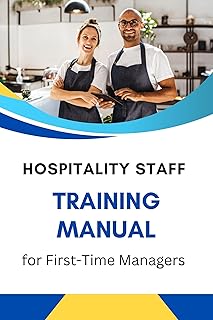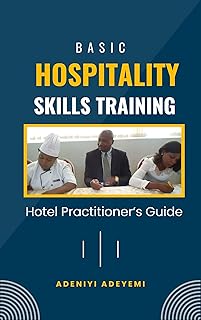As the hospitality industry evolves, the workforce dynamics are being reshaped by Gen Z and Millennials, setting new expectations and standards that demand a shift in training strategies. With these generations comprising a significant portion of the global labor force, it is imperative for businesses to adapt their learning and development programs to attract and retain talent effectively.
Professional development is no longer a luxury but a necessity for the emerging workforce. The focus has shifted towards soft skills, such as communication and empathy, over technical abilities. This trend presents an opportunity for organizations to revamp their training initiatives by providing relevant content that aligns with the fast-paced nature of hospitality work.
Managers are now expected to serve as mentors rather than just taskmasters. However, many managers are struggling to balance administrative duties with coaching responsibilities. To address this gap, companies need to equip their managers with the necessary tools and training to support their teams effectively, fostering a culture of mentorship and continuous learning.
Employee well-being is a critical aspect that directly impacts business performance. Financial stress and mental health issues are prevalent among Gen Zs and Millennials, highlighting the need for organizations to integrate modules on stress management and financial literacy into their training programs. By demonstrating a clear link between training, career advancement, and overall well-being, businesses can enhance retention and performance.
A sense of purpose is a significant motivator for the younger workforce, with many emphasizing the importance of job satisfaction and meaningful work. By incorporating stories of impact and community engagement into training content, companies can empower employees to connect their personal values with their professional roles, fostering a sense of purpose and engagement.
Traditional higher education is losing its appeal among Gen Zs and Millennials, who are increasingly turning to vocational training and practical experience. This shift presents an opportunity for the hospitality sector to offer role-specific education that accelerates career growth. By partnering with training providers and celebrating vocational achievements, businesses can provide valuable alternatives to conventional degrees.
Ultimately, the onus is on hospitality leaders to meet the evolving needs and expectations of the younger workforce. By investing in training programs that resonate with the values and aspirations of Gen Z and Millennials, businesses can not only future-proof their operations but also cultivate the next generation of leaders who will elevate the industry as a whole.
Allara Global offers tailored training solutions designed to engage and inspire the new generation of hospitality talent, aligning with the evolving demands of the industry. Their programs focus on soft skills, leadership development, mental well-being, and purpose-driven learning, empowering teams to grow and lead with confidence. By embracing innovative training approaches, businesses can ensure their workforce remains motivated, skilled, and prepared for the future.
📰 Related Articles
- Millennials and Gen Z Reshape $2 Trillion Wellness Market
- Why Luxury Fashion Appeals to Gen Z Investors: Investment Trends and Caution
- Marks & Spencer’s Lingerie Revival Attracts Gen Z Shoppers
- Gen Z Teens Shape 2025 Trends in Fashion and Wellness
- Gen Z Redefines Fashion: Embracing Sustainability as Lifestyle






